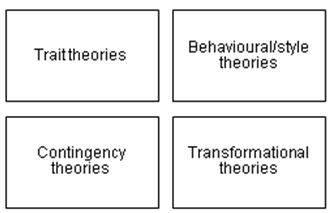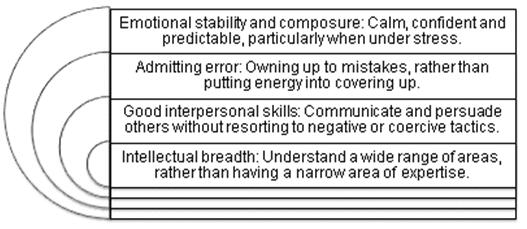扫码下载APP
及时接收考试资讯及
备考信息
1. Strategic leadership(战略性领导力)
A leader is someone who exercises an influence over other people. Leadership is an interpersonal influence directed towards the achievement of a goal.
The study of leadership has produced a number of theories and may be analysed in four main groups:
战略性领导力主要由四种不同的领导力理论构成:特质理论、行为理论、权变理论和变革理论。也可以理解为是四种领导力类型。

a) Trait Theories(特质理论)
People are born with inherited traits.
Some traits are particularly suited to leadership.
People who make good leaders have the right (or sufficient) combination of traits.
Early research on leadership was based on the psychological focus of the day, which was of people having inherited characteristics or traits.
Attention was thus put on discovering these traits, often by studying successful leaders, but with the underlying assumption that if other people could also be found with these traits, then they, too, could become great leaders.
特质理论主要是根据人员的不同的特性来进行管理和刺激,从而达到劳动力的化。下面是关于Stogdill和McCall and Lombardo提出的:
Stogdill (1974) identified the following traits and skills as critical to leaders:
Traits Skills
Adaptable to situations Clever (intelligent)
Alert to social environment Conceptually skilled
Ambitious and achievement-orientated Creative
Assertive Diplomatic and tactful
Cooperative Fluent in speaking
Decisive Knowledgeable about group task
Dependable Organised (administrative ability)
Dominant (desire to influence others) Persuasive
Energetic (high activity level) Socially skilled
Persistent
Self-confident
Tolerant of stress
Willing to assume responsibility
McCall and Lombardo (1983) identified four primary traits by which leaders could succeed:

Copyright © 2000 - www.chinaacc.com All Rights Reserved. 北京正保会计科技有限公司 版权所有
京B2-20200959 京ICP备20012371号-7 出版物经营许可证 ![]() 京公网安备 11010802044457号
京公网安备 11010802044457号
套餐D大额券
¥
去使用